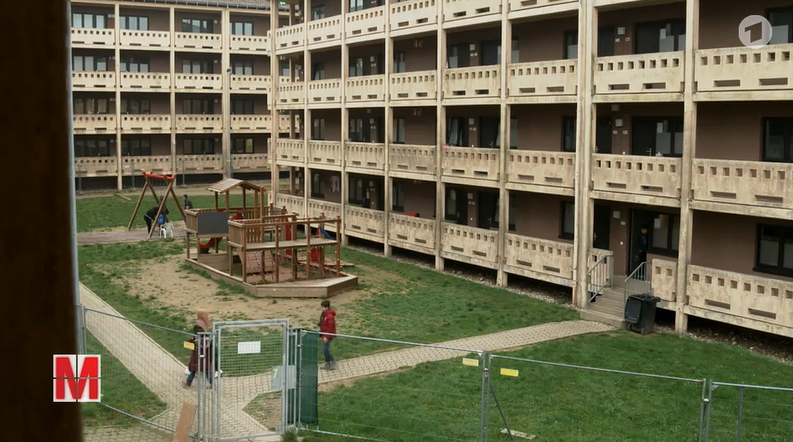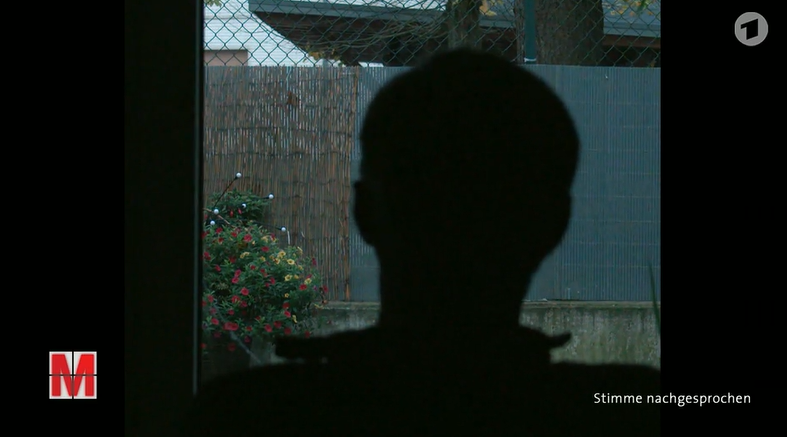At least 130 homes for asylum seekers in Germany are fully or partially run by private enterprise. The business is making huge profits for those companies, report German public broadcasters and the newspaper Süddeutsche Zeitung.
Serco is a British firm that operates worldwide across a variety of sectors, including handling contracts for governments in Europe, the UK and Australia in areas like defense, border control, prisons, space and migration.
In recent years, Serco and its subsidiaries have been winning more and more contracts to operate in the immigration sector in Germany. According to research by German public broadcasters ARD and ZDF, in conjunction with the German newspaper Süddeutsche Zeitung (SZ), 130 centers for asylum seekers are run by Serco subsidiaries ORS and European Homecare, housing about 55,000 asylum seekers.
Serco has been running similar businesses in the UK for years. According to SZ, the company has a ten-year contract in Britain, running until at least 2029, valued at around 1.9 billion pounds (about 2.2 billion euros). Since 2014, Serco has also been running immigration detention centers in Australia. The contracts there are said to be worth around four billion Australian dollars (around 2.4 billion euros) over a ten-year period, although Serco announced this year, they did not win the next round of contracts in Australia.
Read AlsoReport slams accommodation standards for UK asylum seekers
Private companies run asylum accommodation in 13 German states
Human rights organizations have criticized aspects of the way some of these businesses are run in both Britain and Australia. According to SZ, there have been allegations of worms in the food, transporting detainees in handcuffs, suicides and isolation cells in the centers Serco operates.
Now, 13 different German states have contracted out the running of asylum centers to private companies. This is happening more and more in Germany and across Europe. Previously, the contracts went to state organizations, charities or social welfare organizations. But as budgets tighten, according to the research, usually the company that wins the contract is the one that can offer the cheapest price.

"Profit margins [in these homes] are significantly higher than the profits Serco aimed for in the past across all its sectors. So it seems they have discovered a sector where they can really make a profit," comments Professor Werner Nienhüser, an economist from the University of Duisburg-Essen, reports ARD’s Monitor program.
According to internal documents seen by the investigation teams, Serco subsidiaries reported higher than 50 percent gross profit margins in some of the asylum homes it ran. At one facility near Hahn Airport in Rhineland-Palatinate, housed in a former US military barracks with 530 places, the company reported a 66.8 percent gross profit last year.
ORS didn’t respond directly to the allegations that it was making higher than normal profits in Germany from running asylum accommodation. However, it told ARD: "In 2023, our net profit in the immigration sector across Europe was in single figures." The company also runs immigration centers in Italy, Spain, France, Belgium, Austria and Switzerland.
'Money, money, money, that is the main aim'
A former employee of ORS, speaking anonymously to the teams, said that the company was all about "money, money, money, that is the main aim. The business needs to be profitable." Another said, "the aim is to get rich from asylum seekers. They are not really seen as people, but as a product and way to enrich the company."

At the end of June this year, Serco actually revised its profit projections upward after winning new contracts, reported the satirical news show ZDF Magazin Royale.
In order to make these kinds of profits, critics and some anonymous former employees accuse the company of cutting everything down to the absolute minimum. One employee said that there weren’t enough social workers to provide the services promised, and "queues often built up, causing frustration." He added that often, employees like him became the target of this frustration from the asylum seekers, either "directly or indirectly."
Another employee expressed shock at the kind of food being served up in the center where she worked. "I said, we can’t give them this kind of food, these are people, not animals," she told the research teams. "I was told, 'oh, they will get used to it.'"
Read AlsoGermany: Ministers agree on cash limit for asylum seekers' payment cards
Huge turnovers
The company Serco makes more than 5 billion pounds (almost 6 billion euros) turnover worldwide. While 35 percent of its work is in the defense sector, migration is also becoming more and more lucrative. Last year, according to the British financial newspaper The Financial Times (FT), Serco acquired a second subsidiary company running asylum homes in Germany, European Homecare for 40 million euros. In June, the company said that this subsidiary too was helping to contribute towards overall growth.
Criticism of Serco got particularly loud following the death of one Guinean asylum seeker Mamadou Djoulde Diallo in November 2023. He had been living in an asylum accommodation center run by Serco in south-west Berlin.
No one knows why Diallo died, but reports about him highlight the fact that his death went unnoticed for about four weeks. A "strong smell" coming from his room in the asylum seeking accommodation finally alerted people to his death.
According to a report in the SZ from this September, it later transpired that no one had seen him for about four weeks. The Berlin prosecutors charged with investigating the case told the media that a security officer for ORS opened his door eventually and discovered the dead man.
Death of an asylum seeker from Guinea
An initial investigation established that Diallo may have been an alcoholic, because of the decomposition of the body, which also made it difficult to establish the actual causes of death. A fellow Guinean, Sanoussy Barry, who works as a carer in Germany, ended up burying Diallo, even though he didn’t know him beforehand.

Barry accused ORS of not having done enough. "They just wanted to take the money," Barry told SZ.
ORS rejects these allegations, telling SZ that "we offer accommodation, not social care." They added that ORS employees "are not permitted to enter the rooms of our residents, but we did ask some of the residents where he might be and were told he was at work."
SZ points out that since no one discovered Diallo’s death for about four weeks, ORS must have continued to receive payments for him. "That money has now been paid back," said an ORS lawyer, according to SZ.
A few months later, in spring this year, the Berlin office for Asylum and Refugees (Berliner Landesamt für Flüchtlingsangelegenheiten – LAF) decided to cancel three contracts they had had with ORS to run asylum accommodation centers in the region.
Read AlsoGermany to launch asylum payment card for asylum seekers nationwide
Berlin: Cancellation of contracts
LAF stated that the cancellation of the contracts was due to "serious defects" and "multiple structural problems." They told SZ that they couldn’t give more details because there was an "ongoing process underway." ORS said that these allegations were unfounded, telling ARD and ZDF: "We take our responsibilities very seriously and make sure we meet the high standards of our contractors."

Back in the home where Diallo was resident, SZ spoke to a Palestinian family who were resident in the home before ORS took over. When the home was opened in 2019, it was run by the Berlin state mission.
The family, who didn’t want to give their real names, said that when the Berlin State Mission had run the home, "there were summer parties and Christmas parties and food and toys were brought for the children." Since ORS took over, the family alleges that "they don’t do that kind of thing anymore. There were play rooms and learning rooms, they are all shut up now."
Allegations of negative changes since Serco took over
One of the children in the family said the children in the home would be taken on trips outside if they signed up, and that social workers at the home would help people apply for the correct documents and fill out forms. But since ORS took over, there is hardly anyone in the office that offers those services, they claimed.
SZ said they researched further and also found that there were very few ORS personnel present whenever they visited the area. ORS denies these allegations.
Last year, four social welfare organizations wrote to the LAF in Berlin to say they were worried about Serco taking over the running of so many asylum homes, and that they feared that profit would be placed above the welfare of asylum seekers.
According to SZ and ARD, who saw internal Berlin documents, when the LAF put the contracts to run the homes out for tender, the price, and getting the lowest price was the main criteria for the tenders, and not the quality of the offer.
This article is based on reports and research by ARD's Monitor program, ZDF's Magazin Royale and several articles in the Süddeutsche Zeitung.
